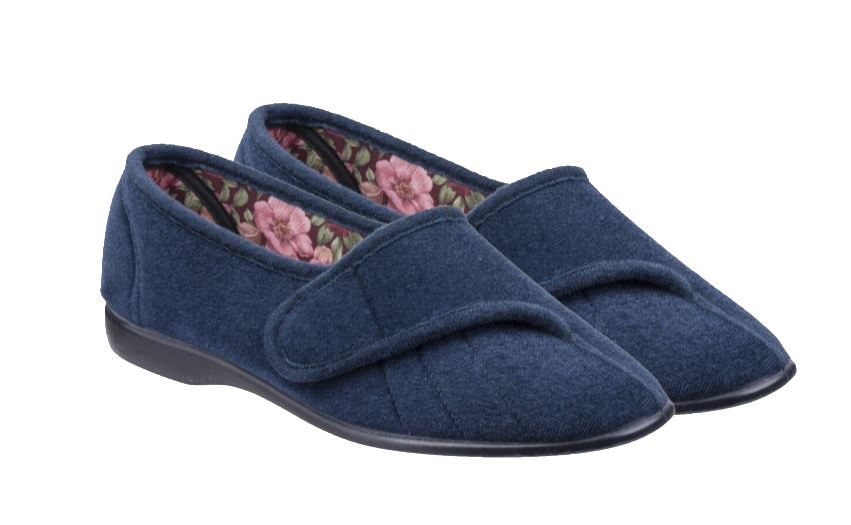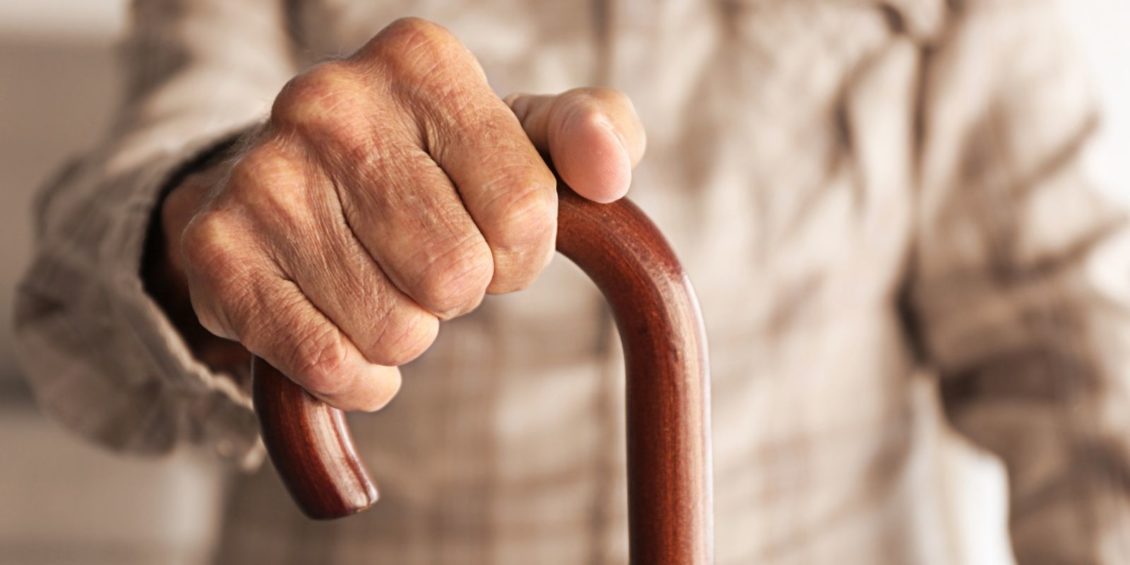With Christmas just around the corner, you have probably already started making your way through this year’s shopping list.
Slippers are often a popular gift for elderly loved ones at this time of year but it’s important to consider the style and fit of the pair you choose.
Footwear that is badly-fitted or loose can significantly increase the risk of a fall.
Every year hundreds of thousands of older people in Wales suffer falls, and unfortunately some really hurt themselves.
During 2020, almost 3,000 people aged 75 and over attended the Emergency Department at Morriston Hospital, in Swansea, and the Minor Injury Unit at Neath Port Talbot Hospital as a result of a fall.


While not all of the 2,991 falls would have been related to wearing ill-fitting footwear, a proportion of them would have been.
Choosing appropriate slippers that grip the foot well and have slip-resistant soles can help prevent the risk of a fall among older people.
“A good slipper needs to have enclosed heels and toes and it should come up to support the mid-foot area,” Sharon Jackson, Interim West Hub Operational Lead, said.
“It should fit the foot securely, ideally with Velcro fastening which is helpful if you suffer from swollen feet as you can adjust it accordingly throughout the day.
“It’s important to look at the way they are fastened. Consider how to get them on and off because often people choose slippers with no support because they struggle to get enclosed slippers on and off. You can also think about using a long-handled shoe horn.
“You want a sole that is firm and supportive, and is ideally non-slip.”
Slippers that are backless, have open toes or a high heel should be avoided as they don’t offer sufficient grip or support.
While old or worn slippers should be replaced, as well as enclosed slippers that have had their heels flattened down over time, as they don’t provide suitable support.
Footwear with spongey soles also aren’t a suitable option.
Eleri D’Arcy, an occupational therapist based at Morriston Hospital, said: “The impact of a fall can go far beyond having an injury or getting a fracture. You can lose your confidence so quickly which can lead you to stop doing things and isolate yourself and that can then accelerate the ageing process and actually increase the risk of falls.
“The earlier we can put some preventative measures in, the better. It’s important not to wait until the fall has happened but to get the prevention in early and think sensibly about reducing any risks as much as possible.”
Eleri added: “We don’t want people to stop doing their activities that are important to them. We want to promote independence but we can do things a bit more mindfully.
“In terms of activities, rather than stopping someone going to the kitchen and making themselves a meal or hot drink, we can think about what they need on a regular basis so those things are not in a high cupboard.
“Keeping items that they use regularly at hand, on the worktop ideally, so they’re not bending down or reaching up for things unnecessarily. That can be quite empowering so people can just do that independently.”
Eleri identified some everyday risks that can easily be prevented at home including:
- Reducing cluttered areas, particularly in narrow walkways or on stairs
- Getting rid of unnecessary rugs or having loose rugs on shiny surfaces
- Attending to threadbare carpets
- Tidying trailing wires
- Wearing sensible dressing gowns or making sure their belts are tied
- Being mindful of long skirts or trousers trailing on the floor
- Checking to see if additional rails are needed around stairs or toilets
- Ensuring chair and toilet heights are appropriate
Sharon said: “Falls are not inevitable and there’s a lot we can do to prevent them.
“Helping the elderly person to meet household repairs and making sure their seating is still fit for purpose are just some examples.
“They may even need to have a new armchair bought for them with arms they can push out of.
“Neighbours, family and friends can make sure they support them with changing lightbulbs and making sure that lights and lamps are easy to reach.
“You can even look at rails around steps and check to see if there’s good lighting outside.”
Choosing the right footwear is so important, particularly for frail and elderly people.
Slippers that don’t fit properly can increase the risk of falling, which can have a knock-on effect on the person’s recovery.
“It’s important not to ignore the smaller falls and the ones where somebody doesn’t get injured,” Eleri said.
“They can often be a precursor to a bigger fall so we want to make sure that we’re working out why that is happening and taking preventative measures at that stage to stop things from escalating.”









Leave a Reply
View Comments